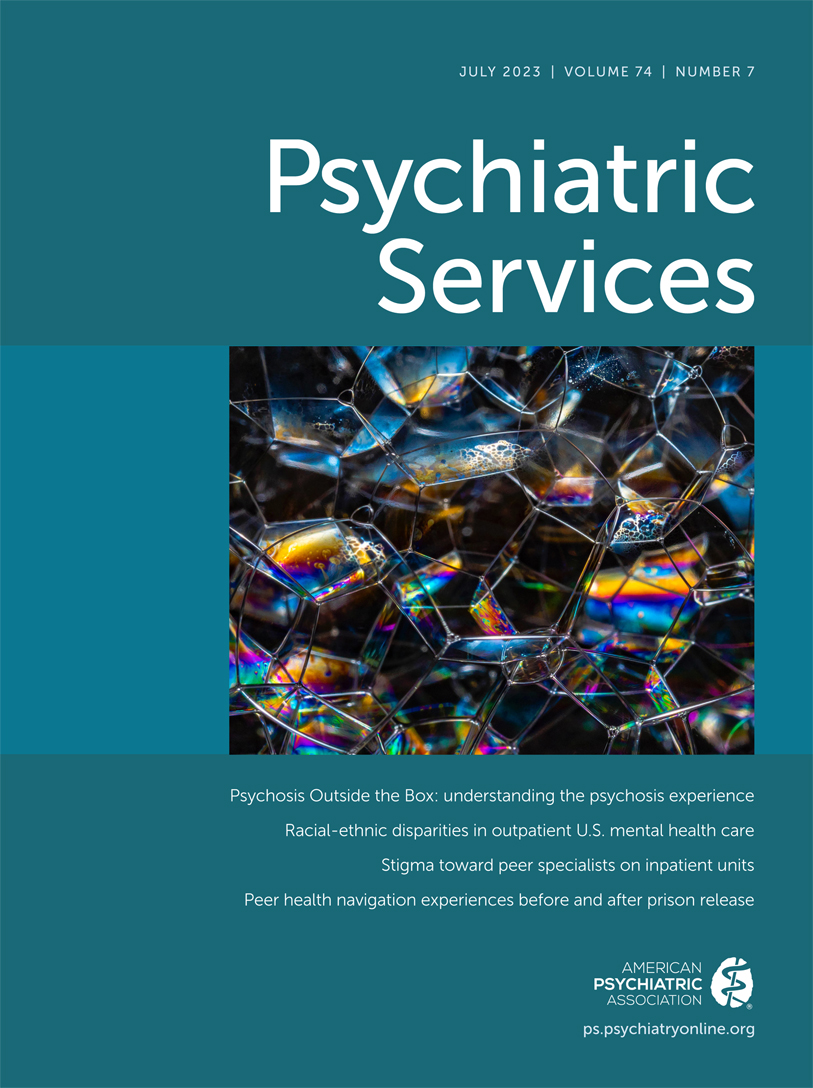Criminal Legal Involvement Among U.S. Adults With Serious Psychological Distress and Differences by Race-Ethnicity
Abstract
Objective:
The authors examined associations between criminal legal involvement (CLI) and serious psychological distress and how these associations differed by racial-ethnic group.
Methods:
The authors conducted a retrospective analysis of multiple cross-sections of data from the National Survey on Drug Use and Health (2015–2019) and used multivariable linear probability regression models to assess lifetime CLI and past-year probation, parole, supervised release, or other conditional release in a nationally representative sample of noninstitutionalized U.S. adults, ages ≥18 years (N=214,505), with and without serious psychological distress.
Results:
Adults with serious psychological distress had higher rates of CLI than adults without such distress (difference of 4.1 percentage points, 95% CI=3.3–4.8, p<0.001). The rate of CLI increased as distress severity increased, from mild (3.2 percentage-point difference, 95% CI=2.6–3.8, p<0.001) to high (7.2 percentage-point difference, 95% CI=6.4–8.0, p<0.001). The risk for CLI among those with serious psychological distress was even greater for Black and Latinx adults than for White adults (1.8 percentage-point difference, 95% CI=0.1–3.5, p<0.05, and 3.2 percentage-point difference, 95% CI=1.3–5.2, p<0.01, respectively).
Conclusions:
Rates of CLI were higher for adults with serious psychological distress. Efforts are needed to equitably triage individuals with acute mental health needs to timely psychiatric care instead of carceral settings. Collaborative models of care that commingle resources from mental health and law enforcement organizations are needed to prevent unnecessary incarceration of individuals experiencing mental health crises and to increase access to community-based treatment.
Access content
To read the fulltext, please use one of the options below to sign in or purchase access.- Personal login
- Institutional Login
- Sign in via OpenAthens
- Register for access
-
Please login/register if you wish to pair your device and check access availability.
Not a subscriber?
PsychiatryOnline subscription options offer access to the DSM-5 library, books, journals, CME, and patient resources. This all-in-one virtual library provides psychiatrists and mental health professionals with key resources for diagnosis, treatment, research, and professional development.
Need more help? PsychiatryOnline Customer Service may be reached by emailing [email protected] or by calling 800-368-5777 (in the U.S.) or 703-907-7322 (outside the U.S.).



